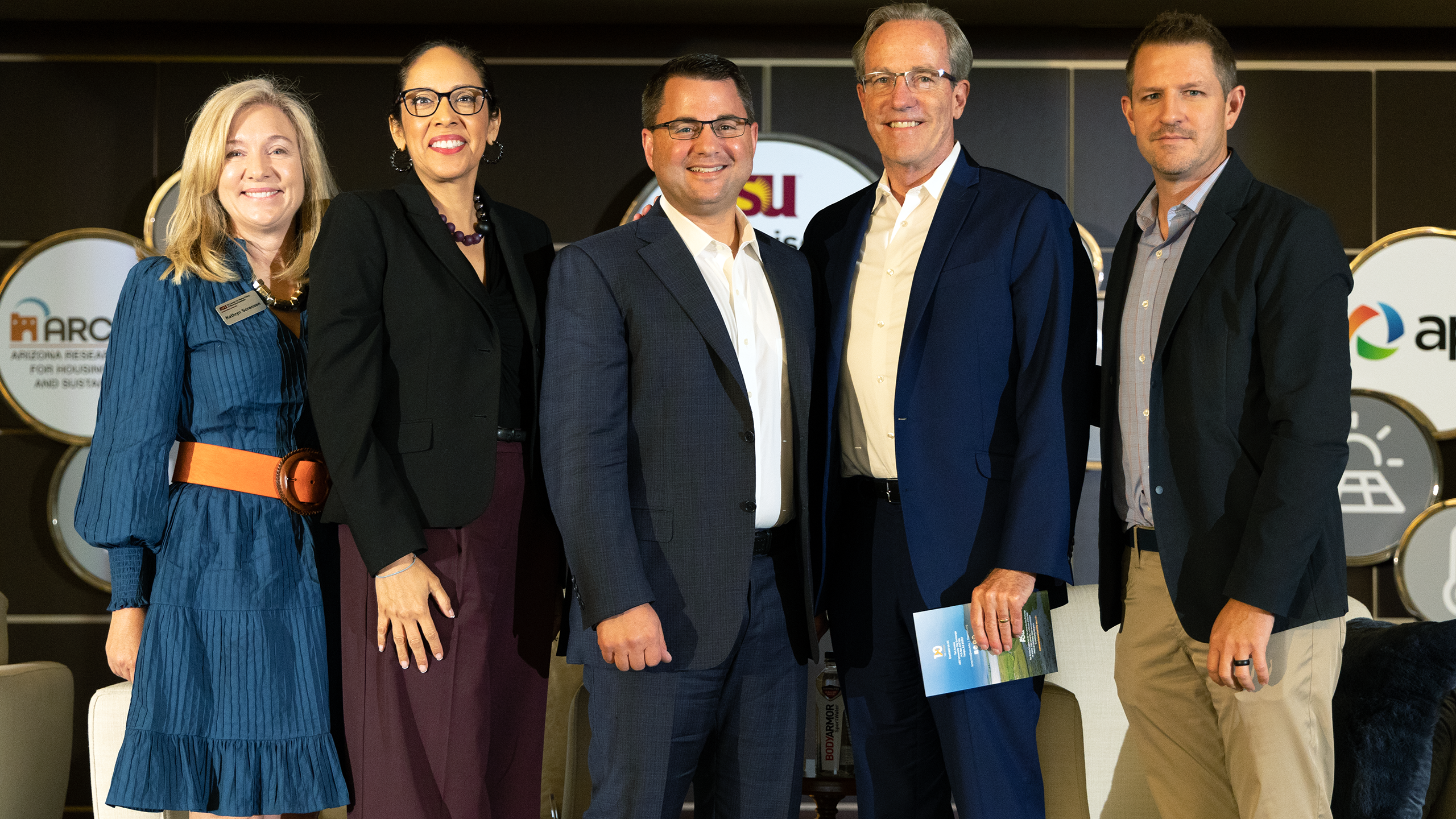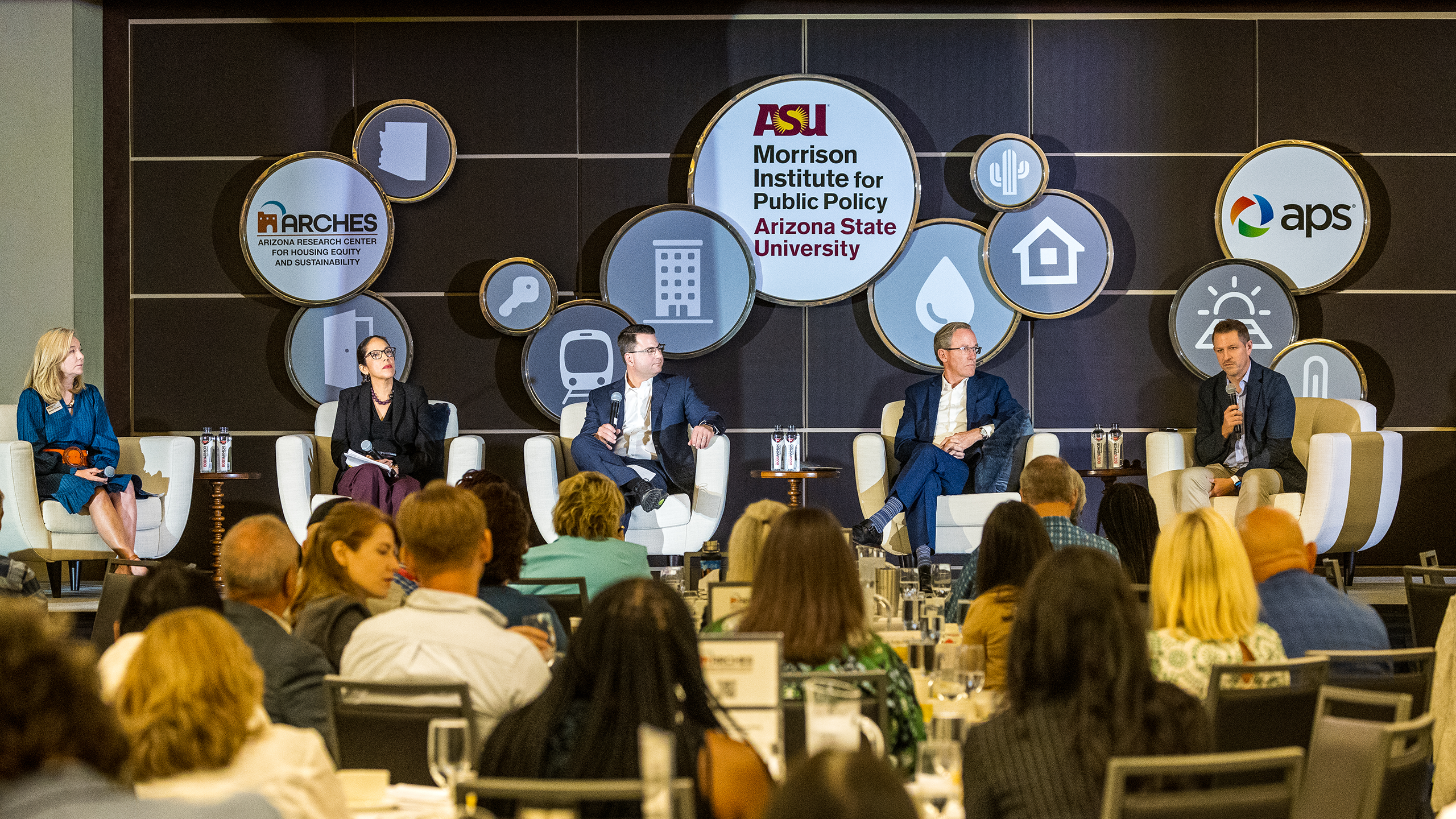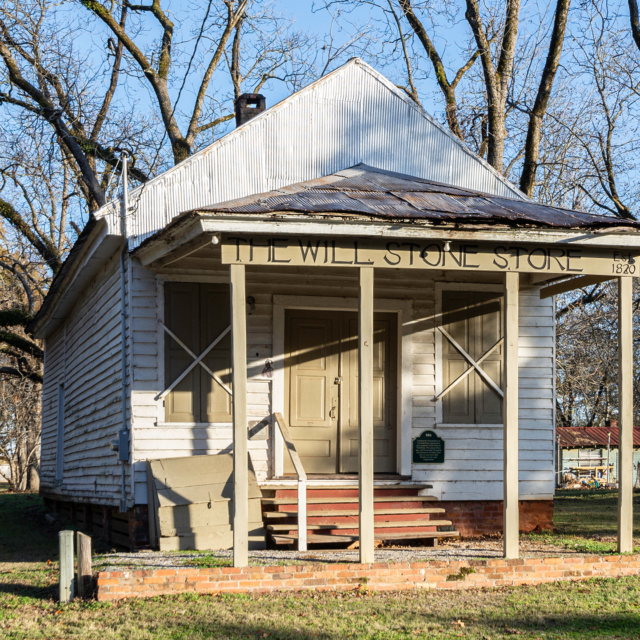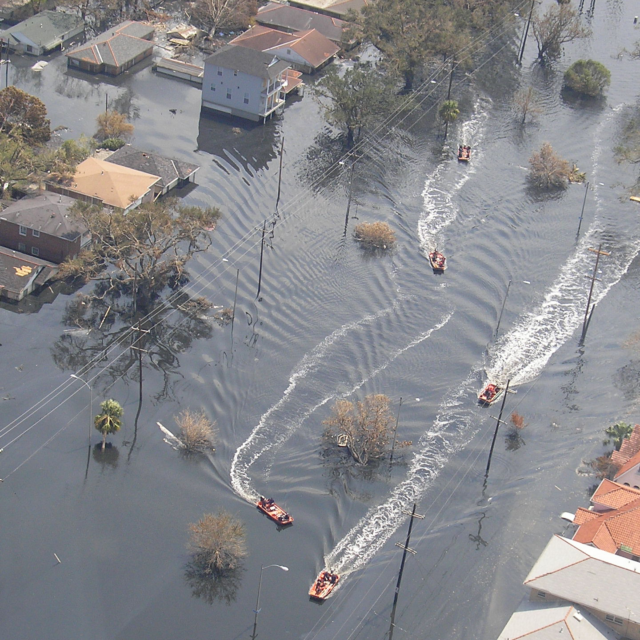The Morrison Institute for Public Policy at Arizona State University is Arizona’s first and oldest policy think tank. On August 16th, the institute hosted a Housing and Water Policy Summit to inform leaders from around the state about current insights into housing affordability and commercial groundwater regulation. The summit’s focus on intelligent policy decision-making to balance natural resources with economic growth reflects both Morrison Institute’s legacy and the interests of Ten Across stakeholders well beyond the Southwest.
According to Andrea Whitsett, executive director of Morrison Institute, the summit’s themes anticipate the upcoming release of a new report as well as larger research objectives for the organization. The report, with no official release date so far, is designed to offer policymakers and the public new tools to support Arizona’s smart growth with investments made in the right places at the right times, Whitsett wrote in an email to Ten Across.
Over the past forty years, Morrison Institute has become known for delivering influential policy impact reports each year. These reports have covered a range of critical issues including educational equity, public transit, Arizona-Mexico trade, and much more.
In 2021, the institute addressed a growing national crisis with the publication of “Housing is Health Care”: The Impact of Supportive Housing on the Costs of Chronic Mental Illness. The study provided the basis for the 2023 launch of the Arizona Research Center for Housing Equity and Sustainability (ARCHES) to advance this work around intersections of housing, criminal justice and health care.
As part of this year’s August summit, ARCHES presented its first publication. The 2024 State of Housing in Arizona Report compares Arizona to four other Ten Across states with large Hispanic and Latino populations (California, New Mexico, Texas and Florida) as well as the neighboring state of Nevada to contextualize local housing affordability and income equity. Their data show that Arizona’s housing supply is lagging population growth, leading to a decrease in individual purchasing power for goods and services and to increasingly prohibitive costs for first-time home buyers and renters.
In support of Morrison Institute’s current research linking housing affordability to water supply conditions, Sarah Porter, director of the institute’s Kyl Center for Water Policy, followed the ARCHES presentation with her center’s analysis of state groundwater management. This Arizona Water Blueprint white paper supports her session’s premise: that while new groundwater use limitations could increase the cost of new homes in the Greater Phoenix area, there are also multiple policies and strategies cities can adopt to mitigate these impacts.
The morning concluded with a panel of local experts reflecting on the findings presented and their implications for the future of the Greater Phoenix metro. As an architect, urbanist, and the founder and executive director of Ten Across, Duke Reiter was invited to contribute regional and built environment perspectives to the conversation, joined by Anna Maria Chávez, president & CEO of the Arizona Community Foundation; Ted Geisler, president of Arizona Public Service Company; and Chris Camacho, president & CEO of the Greater Phoenix Economic Council. Kathryn Sorensen, director of research for the Kyl Center for Water Policy, acted as both panelist and moderator.

from left: Kathryn Sorensen, Anna Maria Chávez, Ted Geisler, Duke Reiter, and Chris Camacho
Throughout the session, Sorensen and the panelists navigated common concerns regarding Arizona’s housing, water and energy supplies, while expressing an overall optimism for the state’s industrial and economic success. Greater Phoenix’s population continues to grow rapidly, and the city is among the top three most attractive sites for data centers, according to Arizona Public Service Company (APS) President Ted Geisler. This has led to a recent peak in energy demand which APS is working to address.
As Sorensen notes, there will always be trade-offs to a city’s success. A thriving tech economy and population boom will require significant consideration of air quality and water supply for years to come.
But to Camacho and the Greater Phoenix Economic Council, these should be considered welcome risks, as they are indicators of an active and desirable local market. “For those of you that have been here for a decade or more… back then, when we were yearning to have part of some of the challenges we’re dealing with today,” he said, “we wanted to see more. We wanted to see higher risk. We wanted to see more economic diversity.”
Risk also opens a city up to innovation, and Phoenix—with its extreme heat and water challenges—is no stranger to this concept. Speaking to the audience, Reiter said, “You may not understand…how much authority the Phoenix region has around the ability to demonstrate what innovation and entrepreneurship means. Others are looking at us. This is an invented place… This is a manufactured city.”
The panelists agreed that with proper planning and a unified vision among the community and its leaders, Phoenix could continue to grow safely and sustainably well into the future.
“I’m very positive about our future in Arizona,” said Chávez. “I think we’re planning well.”
Learn more about the history of the Morrison Institute here.
For more on Phoenix growth, water and other issues; check out a few relevant Ten Across Conversations podcasts below:
“Why Phoenix is the ‘Most American City’ with George Packer”
“Local Experts Answer: Why Are People Still Moving to Phoenix?”
“Business Leaders Are Trying to See Deeper Into an Uncertain Future” (episode features Chris Camacho)
Give Ten Across Conversations a follow on your favorite podcast platform to receive our upcoming interview with ARCHES report authors Alison Cook-Davis and Kristi Eustice as soon as it releases this fall.




